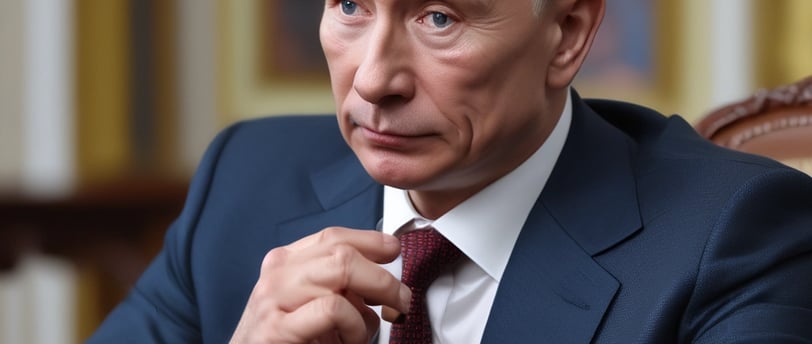Putin's Perspective: The Ukraine Conflict and Trump's Influence
1/25/20252 min read


Introduction to the Remarks
In recent statements, Russian President Vladimir Putin made notable comments regarding the ongoing war in Ukraine, specifically linking it to the previous administration of Donald Trump. This discourse reflects Putin's perspective on international relationships and geopolitical dynamics, particularly concerning the influence of leadership on global conflicts.
Putin's Assertion: A Trump Presidency's Impact
During his remarks, Putin suggested that the invasion of Ukraine might have taken a different course had Donald Trump been the U.S. president. This suggestion mirrors Trump’s earlier claims that his leadership would have prevented the conflict from escalating. These assertions prompt a significant discussion about the implications of presidential influence on international affairs and the resultant impact on peace, stability, and military action.
Implications and Interpretations
The comments made by Putin are not only a strategic maneuver in the ongoing war narrative but also a calculated move in the political chessboard between Russia and Western nations. By positing that the Ukraine invasion could have been avoided under Trump, Putin attempts to undermine the current U.S. administration while simultaneously appealing to Trump’s supporters. This interplay of rhetoric raises critical questions about the role of individual leaders in shaping major geopolitical events.
The narrative surrounding Trump and the Ukraine invasion highlights a deeper dynamic within the realm of international relations. Countries often evaluate the potential moves of foreign leaders based on their prior statements and actions. Putin's remarks underscore a desire to shift the blame for the conflict onto the current U.S. leadership while subtly praising Trump’s approach, which he perceives as less confrontational.
This political narrative feeds into broader discussions about how U.S. foreign policy can influence world events. For instance, instances of military conflict can often be linked back to the administrative choices made by U.S. presidents. The portrayal of Trump’s potential role in averting the war suggests that different leadership styles can yield divergent outcomes on the global stage.
Conclusion: A Complex Geopolitical Landscape
In summary, Putin's comments regarding the Ukraine invasion and Donald Trump reflect a multifaceted geopolitical landscape shaped by individual leadership. As world leaders continue to navigate these complexities, the impact of past presidencies remains a potent topic of discourse in understanding contemporary international relations.
The ongoing dialogues surrounding the United States' foreign relations, especially regarding Russia and Ukraine, will undoubtedly evolve, especially as the world watches for shifts in leadership and policy that could result in significant changes. Putin’s reflections serve as a reminder of how past and present leadership intertwine in influencing the course of global events.
